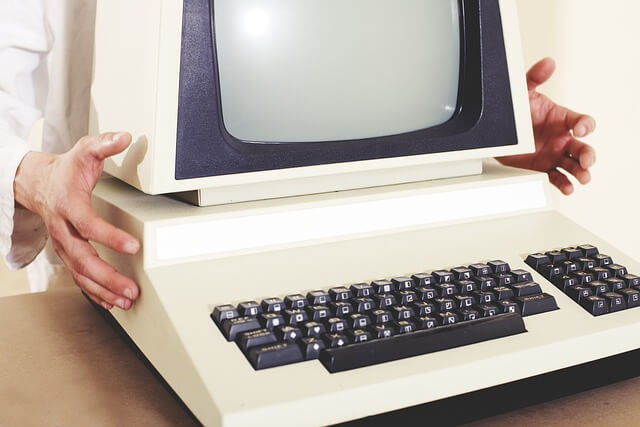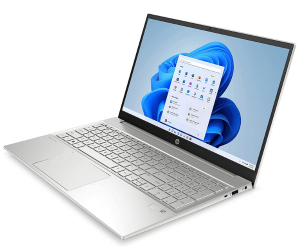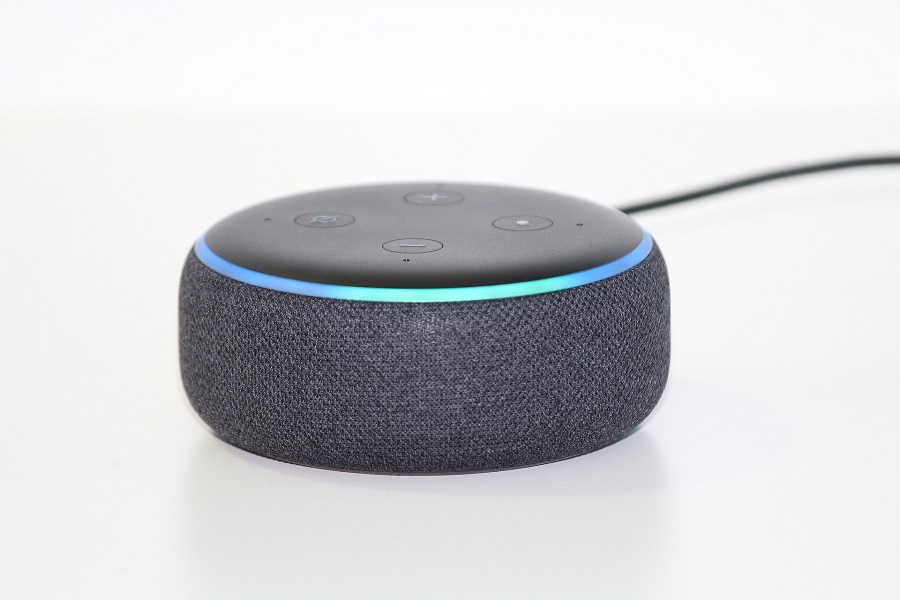The 5 biggest mispredictions in tech history
Technology has changed the world in ways our ancestors could never have imagined. From the invention of the wheel to the development of the internet, technology has proven time and time again that it has the potential to fundamentally change the way we live. But not all forecasts and predictions hit the mark. In fact, there have been some notable mispredictions in the history of technology. Sometimes these mispredictions were the result of a lack of understanding or skepticism about new technologies.

In other cases, they were simply the result of misperceptions about a particular technology’s potential. In this article, we take a look at the five biggest misjudgements in tech history. We will examine why these predictions were made, why they were wrong, and what we can learn from those mistakes. It’s a fascinating journey through the ups and downs of technological predictions and a reminder that sometimes even the brightest minds get it wrong.
The 5 biggest mispredictions in tech history
Technology has changed the world in ways our ancestors could never have imagined. From the invention of the wheel to the development of the internet, technology has proven time and time again that it has the potential to fundamentally change the way we live. But not all forecasts and predictions hit the mark. In fact, there have been some notable mispredictions in the history of technology. Sometimes these mispredictions were the result of a lack of understanding or skepticism about new technologies.

In other cases, they were simply the result of misperceptions about a particular technology’s potential. In this article, we take a look at the five biggest misjudgements in tech history. We will examine why these predictions were made, why they were wrong, and what we can learn from those mistakes. It’s a fascinating journey through the ups and downs of technological predictions and a reminder that sometimes even the brightest minds get it wrong.
No. 1 “There is maybe a market for five computers in the world…”
No. 1 “There is maybe a market for five computers in the world…”
Thomas Watson, IBM, predicted that there might be a market for five computers in the world in 1943.
The 1940s, a time when the thought of a computers in every household was as absurd as the idea that people would one day land on the moon. IBM’s then-Chairman Thomas Watson is famous for predicting that there might be a market for five computers in the world. Five. Five in all! You can picture Watson sitting in his office, gazing out at a world that has never heard of Wi-Fi, social media, or online shopping, and thinking: “Yes, five should do it.”
Perhaps he was thinking of five giant, room-filling computers used by governments and large corporations. The idea that one day we would all carry a powerful computer in our pocket was probably too far-fetched.

“Of course, the irony of this prediction is that IBM would later play a leading role in the personal computer revolution. Today there are billions of computers in the world and the number is constantly growing. From laptops to desktops to the computers in our smartphones, it’s clear that Watson’s prediction was a little off.”
But let’s not be too harsh on him. After all, it was a different time, and the idea that computers would one day be as ubiquitous as they are today was almost unthinkable back then. It’s a reminder that sometimes even the brightest of minds cannot accurately predict the future. And it’s also a reminder that when it comes to technology, we should always be open to the unexpected. Who knows what incredible innovations lie ahead?
Thomas Watson, IBM, predicted that there might be a market for five computers in the world in 1943.
The 1940s, a time when the thought of a computers in every household was as absurd as the idea that people would one day land on the moon. IBM’s then-Chairman Thomas Watson is famous for predicting that there might be a market for five computers in the world. Five. Five in all! You can picture Watson sitting in his office, gazing out at a world that has never heard of Wi-Fi, social media, or online shopping, and thinking: “Yes, five should do it.”
Perhaps he was thinking of five giant, room-filling computers used by governments and large corporations. The idea that one day we would all carry a powerful computer in our pocket was probably too far-fetched.

“Of course, the irony of this prediction is that IBM would later play a leading role in the personal computer revolution. Today there are billions of computers in the world and the number is constantly growing. From laptops to desktops to the computers in our smartphones, it’s clear that Watson’s prediction was a little off.”
But let’s not be too harsh on him. After all, it was a different time, and the idea that computers would one day be as ubiquitous as they are today was almost unthinkable back then. It’s a reminder that sometimes even the brightest of minds cannot accurately predict the future. And it’s also a reminder that when it comes to technology, we should always be open to the unexpected. Who knows what incredible innovations lie ahead?
No. 2 “The Internet will blow us up spectacularly in the 1990s”
No. 2 “The Internet will blow us up spectacularly in the 1990s”
Robert Metcalfe predicted that the internet would blow up in our ears in a spectacular way in the 1990s
Robert Metcalfe, the inventor of Ethernet and co-founder of 3Com, made this daring one Predicted in an article for InfoWorld magazine in 1995. He firmly believed that the Internet would “soon end in a spectacular, catastrophic collapse”. Metcalfe was so sure of his prediction that he promised to eat his words if he was wrong.
Well, as we all know, the internet has not only survived but has become an integral part of our lives. From online shopping and social media through to streaming services and Online Education, the Internet has fundamentally changed the way we work, learn and entertain ourselves.
A man a word!
Metcalfe, a man of his word, fulfilled his promise during a conference in 1999. He chopped up the article in which he made his prediction, mixed it in a blender with some liquid, and drank it in front of the audience. It was a humorous moment that underscored the importance of humility and humor in the world of technology.
Metcalfe’s prediction is a living example of how difficult it is to predict the future of technology. It also shows that even the brightest minds can sometimes be wrong. But perhaps most importantly, it reminds us not to take our predictions too seriously. Because who knows when you might be forced to eat your words… or in this case, drink!
Robert Metcalfe predicted that the internet would blow up in our ears in a spectacular way in the 1990s
Robert Metcalfe, the inventor of Ethernet and co-founder of 3Com, made this daring one Predicted in an article for InfoWorld magazine in 1995. He firmly believed that the Internet would “soon end in a spectacular, catastrophic collapse”. Metcalfe was so sure of his prediction that he promised to eat his words if he was wrong.
Well, as we all know, the internet has not only survived but has become an integral part of our lives. From online shopping and social media through to streaming services and Online Education, the Internet has fundamentally changed the way we work, learn and entertain ourselves.
A man a word!
Metcalfe, a man of his word, fulfilled his promise during a conference in 1999. He chopped up the article in which he made his prediction, mixed it in a blender with some liquid, and drank it in front of the audience. It was a humorous moment that underscored the importance of humility and humor in the world of technology.
Metcalfe’s prediction is a living example of how difficult it is to predict the future of technology. It also shows that even the brightest minds can sometimes be wrong. But perhaps most importantly, it reminds us not to take our predictions too seriously. Because who knows when you might be forced to eat your words… or in this case, drink!
No. 3 “The iPhone has no chance of gaining significant market share”
No. 3 “The iPhone has no chance of gaining significant market share”
Oh what, the iPhone has no chance of gaining significant market share?
What were we laughing about…
This unbelievable misprognosis came from Steve Ballmer, former CEO of Microsoft, in 2007
It’s always easy to be wise in hindsight, but this prediction from Steve Ballmer, Microsoft’s CEO at the time, is particularly amusing. In 2007, when the first iPhone was introduced, Ballmer was convinced it had no chance of gaining a significant market share. He argued that the lack of a keyboard and high price would make the iPhone a niche option.
As we now know, Ballmer was spectacularly wrong. The iPhone not only gained a significant market share, but also the entire Smartphone industry revolutionized. It has fundamentally changed the way we communicate, work and entertain ourselves. Today it’s almost impossible to imagine a world without smartphones, and the iPhone is at the forefront of this revolution.
Ballmer’s misjudgment shows how difficult it can be to predict the impact of a new technology. It’s also a reminder that even the most powerful tech giants sometimes get it wrong. It’s almost as if Ballmer looked into a crystal ball and saw everything upside down. This prediction is a perfect example of how the unpredictable is often the inevitable. And it’s a lesson we should all heed: Never underestimate the power of a good idea – or a shiny new gadget.
Oh what, the iPhone has no chance of gaining significant market share?
What were we laughing about…
This unbelievable misprognosis came from Steve Ballmer, former CEO of Microsoft, in 2007
It’s always easy to be wise in hindsight, but this prediction from Steve Ballmer, Microsoft’s CEO at the time, is particularly amusing. In 2007, when the first iPhone was introduced, Ballmer was convinced it had no chance of gaining a significant market share. He argued that the lack of a keyboard and high price would make the iPhone a niche option.
As we now know, Ballmer was spectacularly wrong. The iPhone not only gained a significant market share, but also the entire Smartphone industry revolutionized. It has fundamentally changed the way we communicate, work and entertain ourselves. Today it’s almost impossible to imagine a world without smartphones, and the iPhone is at the forefront of this revolution.
Ballmer’s misjudgment shows how difficult it can be to predict the impact of a new technology. It’s also a reminder that even the most powerful tech giants sometimes get it wrong. It’s almost as if Ballmer looked into a crystal ball and saw everything upside down. This prediction is a perfect example of how the unpredictable is often the inevitable. And it’s a lesson we should all heed: Never underestimate the power of a good idea – or a shiny new gadget.
No. 4 “No man would want a machine as big as a house”
No. 4 “No man would want a machine as big as a house”
Ken Olsen predicted in 1977 that no one would want a machine the size of a house.
Ken Olsen, co-founder and president of the Digital Equipment Corporation made this statement in 1977 met. It’s easy to criticize him for this miscalculation, but let’s pause for a moment and put ourselves in his shoes. It was 1977, the era of giant mainframe computers that filled entire rooms. The idea that every household could one day have its own computer seemed absurd.
“Olsen never imagined that humans would ever need personal computers. But who could blame him? Who would have thought back then that we would one day have computers that could fit in our pockets and have more processing power than spacecraft that put humans on the moon?”
Today, computers are an integral part of our everyday lives. They’re in our pockets, on our desks, and even in our refrigerators and toasters. They are so ubiquitous that we often forget they are even there. And while we can laugh at Olsen’s misjudgment, we should also be grateful. Because it is misjudgments like this that inspire innovators to make the impossible possible.
So, next time you open your laptop or type on your smartphone, think Ken Olsen and smile. Because without his misprognosis, the world might be a completely different place.
Ken Olsen predicted in 1977 that no one would want a machine the size of a house.
Ken Olsen, co-founder and president of the Digital Equipment Corporation made this statement in 1977 met. It’s easy to criticize him for this miscalculation, but let’s pause for a moment and put ourselves in his shoes. It was 1977, the era of giant mainframe computers that filled entire rooms. The idea that every household could one day have its own computer seemed absurd.
“Olsen never imagined that humans would ever need personal computers. But who could blame him? Who would have thought back then that we would one day have computers that could fit in our pockets and have more processing power than spacecraft that put humans on the moon?”
Today, computers are an integral part of our everyday lives. They’re in our pockets, on our desks, and even in our refrigerators and toasters. They are so ubiquitous that we often forget they are even there. And while we can laugh at Olsen’s misjudgment, we should also be grateful. Because it is misjudgments like this that inspire innovators to make the impossible possible.
So, next time you open your laptop or type on your smartphone, think Ken Olsen and smile. Because without his misprognosis, the world might be a completely different place.
No. 5 “The wireless music box has no conceivable commercial added value”
No. 5 “The wireless music box has no conceivable commercial added value”
David Sarnoff predicted in 1921 that the wireless jukebox (also called radio) had no conceivable commercial added value.
It’s hard to imagine a world without music available to us at the touch of a button. But in 1921, when wireless music was still in its infancy, the associates of David Sarnoff, a pioneer of American radio, were not convinced. They claimed that the “wireless jukebox” – as they called the radio – had “no conceivable commercial value creation”.
One can only imagine how they would be rolling in their graves with the rise of radio stations selling ads and the explosion of music streaming services like Spotify and Apple Music raking in billions of dollars. It’s almost as if they said, “The internet? It’s never going to happen!

This prediction shows how difficult it is to see the potential of a new technology, especially when it is as revolutionary as radio. It’s a reminder that what seems unimaginable today could be the norm tomorrow. So, next time you’re streaming your favorite playlist on Spotify or turn on the radio to hear the latest hits, think of those poor souls who thought the wireless jukebox had no future. You couldn’t have been more wrong!
Reading tip: The 10 most valuable tech companies in the world (as of 2023)
David Sarnoff predicted in 1921 that the wireless jukebox (also called radio) had no conceivable commercial added value.
It’s hard to imagine a world without music available to us at the touch of a button. But in 1921, when wireless music was still in its infancy, the associates of David Sarnoff, a pioneer of American radio, were not convinced. They claimed that the “wireless jukebox” – as they called the radio – had “no conceivable commercial value creation”.
One can only imagine how they would be rolling in their graves with the rise of radio stations selling ads and the explosion of music streaming services like Spotify and Apple Music raking in billions of dollars. It’s almost as if they said, “The internet? It’s never going to happen!

This prediction shows how difficult it is to see the potential of a new technology, especially when it is as revolutionary as radio. It’s a reminder that what seems unimaginable today could be the norm tomorrow. So, next time you’re streaming your favorite playlist on Spotify or turn on the radio to hear the latest hits, think of those poor souls who thought the wireless jukebox had no future. You couldn’t have been more wrong!
Reading tip: The 10 most valuable tech companies in the world (as of 2023)
Popular Posts
Integrate and use ChatGPT in Excel – is that possible?
ChatGPT is more than just a simple chatbot. Learn how it can revolutionize how you work with Excel by translating formulas, creating VBA macros, and even promising future integration with Office.
A turning point in EU policy on regulating AI
The EU's AI Act represents a historic step forward in the regulation of artificial intelligence. With strict guidelines for high-risk applications, it paves the way for safe and responsible AI innovation on a global scale.
The most important cookie settings in Google Chrome
Find out all about the latest cookie settings in Google Chrome. From third-party cookie blocking to SameSite attributes, we cover the most important updates for your online security and privacy.
QR code scams and how to protect yourself
Cybercriminals use fake QR codes to link to malicious websites or distribute malware. Protect yourself by checking the source, using previews and keeping your smartphone up to date. Be vigilant and enjoy digital conveniences safely.
Start Windows without password – How it works
Starting Windows without a password can be useful if your computer is protected from unauthorized access at home. There is no need to change your password either.
The best backup solutions for your data
Keep your data safe and secure! Discover our best backup solutions for your valuable information now. Because safety is the be-all and end-all - and we have the perfect tips.
Popular Posts
Integrate and use ChatGPT in Excel – is that possible?
ChatGPT is more than just a simple chatbot. Learn how it can revolutionize how you work with Excel by translating formulas, creating VBA macros, and even promising future integration with Office.
A turning point in EU policy on regulating AI
The EU's AI Act represents a historic step forward in the regulation of artificial intelligence. With strict guidelines for high-risk applications, it paves the way for safe and responsible AI innovation on a global scale.
The most important cookie settings in Google Chrome
Find out all about the latest cookie settings in Google Chrome. From third-party cookie blocking to SameSite attributes, we cover the most important updates for your online security and privacy.
QR code scams and how to protect yourself
Cybercriminals use fake QR codes to link to malicious websites or distribute malware. Protect yourself by checking the source, using previews and keeping your smartphone up to date. Be vigilant and enjoy digital conveniences safely.
Start Windows without password – How it works
Starting Windows without a password can be useful if your computer is protected from unauthorized access at home. There is no need to change your password either.
The best backup solutions for your data
Keep your data safe and secure! Discover our best backup solutions for your valuable information now. Because safety is the be-all and end-all - and we have the perfect tips.













































